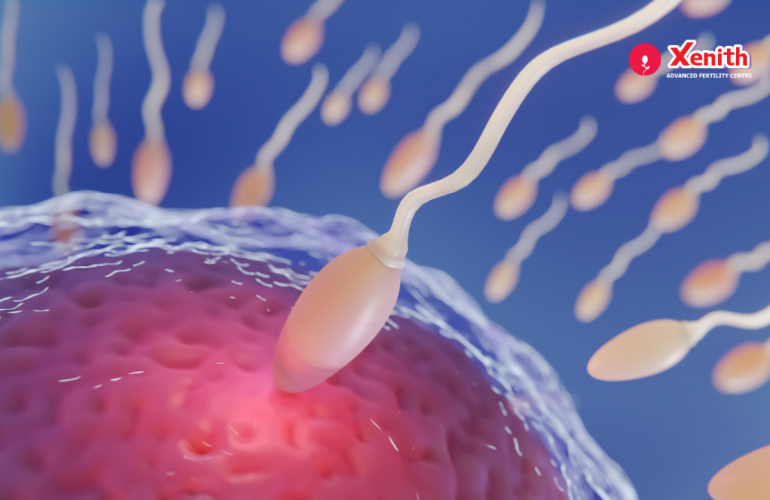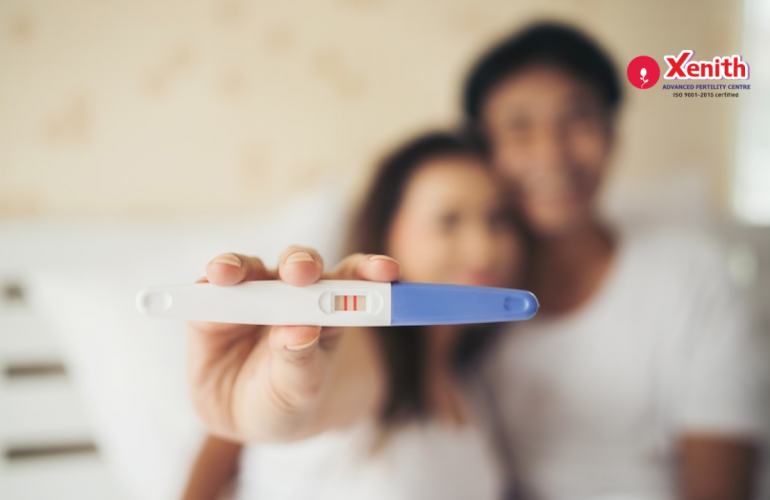Stress can be defined as any type of change that causes physical, emotional, or psychological strain or tension. Everyone experiences stress to some degree or other and the way we respond to it can affect us in various ways. Stress can be short term or long term or it could be experienced in low, moderate or high levels. Some common signs of stress include mood swings, difficulty sleeping, digestive problems, headaches, racing heartbeat, and low energy amongst other things.
The relationship between stress and infertility has been debated for years. Anyone who is dealing with infertility is tired of hearing “Just relax and it will happen automatically.”
Relationship between infertility and stress
Research suggests that infertility can lead to anxiety and stress.1 Many studies have been carried out to see if stress can lead to infertility but are inconclusive because of the complexity of this kind of study.2,3 During extremely stressful situations, anything that isn’t needed for survival shuts down which includes the reproductive system, and it could lead to irregular or absent periods. Stress can also affect implantation in the uterine lining. Stress in males can also reduce sperm quantity and quality.
Stress can also affect fertility negatively in indirect ways. In trying to cope with stress, one could lead to smoking or drinking too much alcohol or caffeine. It could affect one’s sex drive or cause you to eat unhealthy or copious amounts of food. Stress could deter you from exercising or prod you to exercise too much or affect your sleep patterns. Each of these things, in turn can affect fertility. Each person also reacts to stress differently which could also affect fertility.
Eliminating things that cause stress before trying to become pregnant might shorten the time needed to conceive. Women will know which stress reduction strategy works best for them because it’s not a one size fits all strategy. Improved mental health and learning how to cope with stress can help the fertility process.
How to deal with stress due to infertility
- Educate yourself. Understand and learn about infertility and its effects. Talk to your doctor about what to do and how to cope. Be aware of what stresses you and recognize the signs in yourself and how you deal with it.
- Improve your work-life balance. Work from home has caused stress levels to rise as both partners struggle to integrate work and responsibilities at home. Most people end up spending more time on their job leaving little time for work-life balance.
- Speak frankly with your partner, close family, friend, an infertility support group, or a therapist about your feelings. Keep your communication lines open and don’t isolate yourself.
- Keep your body healthy. Eat well balanced, healthy meals like our elders used to eat before fast food came along!
- Engage in moderate exercise for at least 30 minutes like walking or any exercise you enjoy to get your heart rate up. Get enough sleep.
- Learn to relax by listening to music or motivational talks, expressive writing, going to the spa, practice yoga and deep breathing and meditation. Learn to turn off your negative thoughts and self-blame and appreciate all the positive things in your life.
- Make sex fun. After long periods of not being able to conceive, sex might seem more like work and monotonous. You can take a break or try different things to make it more interesting.
So even though, how stress affects fertility is not yet fully understood but being aware of what causes you stress and learning how to deal with it will bring about the best outcome for you. If you have questions about how to deal with stress while trying to conceive or have issues with infertility, feel free to contact Xenith Advanced Fertility center for answers to any questions you might have.




